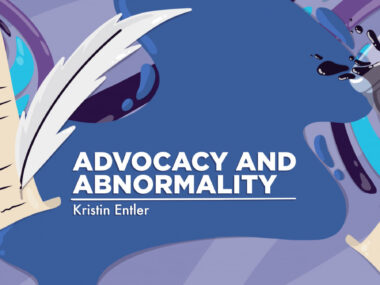Past trauma left me full of anxiety before my most recent surgery
This emotional response was frustrating, but it offered an important reminder
Written by |

I’ve had so many surgeries that I’ve lost track. You’d think I’d be used to the routine by now, but I’m not. With each surgery comes more anxiety as my trauma stacks up. I was convinced it’d get easier as I underwent more procedures, but I’ve learned that each one presents unique challenges.
Growing up with cystic fibrosis (CF) brings a plethora of health hiccups. But while the CF community often talks about the physical symptoms we face, the emotional impact of our disease doesn’t get as much attention, nor does it resolve overnight.
My CF led to a lifesaving double-lung transplant six years ago, and I’m still healing from that traumatic season. Not only was the surgery incredibly painful, but it also changed my life as I knew it.
I’m now working through the emotional effects of my appendix removal a few weeks ago. The organ had burst and formed an abscess, and I had to take antibiotics for several weeks to clear the infection before I was able to undergo surgery. I’m relieved it’s all over now, but the days leading up to the removal weren’t pretty.
Controlling what I can
Before the surgery, I could feel my anxiety amping up. This type of procedure has risks, ones I’ve never dealt with. Before drifting off into a chemically induced nap, I distinctly remember talking to the medical professionals that surrounded my bed. They must have seen the terror on my face because they asked how I was feeling. I admitted my anxiety level was high. They helped me breathe through it, but I was frustrated it was there in the first place. I’d thought I had a handle on my emotions.
Realizing that my anxiety is a physiological response to trauma helps me give myself grace to work through it. It’s not my fault.
Self-awareness — tuning into my body and behaviors — is also helpful. Understanding my body’s signals allows me to tap into my toolbox and find the best ways to manage my anxiety and insulate myself from hypervigilance. Improving my mind-body connection through somatic practices helps me regulate my nervous system and acclimate to what my body has endured.
Complex trauma is just that: complex. It’s multilayered and doesn’t follow a rule book. It can hit in familiar ways or present completely differently from how it’s presented before. When trauma shows up in my body, it changes the way I process emotions and view everything around me.
The unknown is scary. Let’s just admit that. It can wreak havoc on your imagination if you don’t wrangle in your thoughts. Before my appendix removal, my mind went in a million directions, imagining what could happen. This only made the anxiety monster more ferocious.
This experience reminded me that I have to take control of my thoughts. Allowing them to wander down roads of worry, fear, and “what ifs” isn’t healthy; it just creates unnecessary anxiety and stress.
Could something bad have happened during or after my surgery? Absolutely. Did something bad happen? No, thank God. Either way, my worry wouldn’t have influenced the outcome. In retrospect, I wasted time, energy, and emotional bandwidth on the hypothetical catastrophes.
It’s important to feel all the feelings. It’s also important to focus on what’s true rather than imagined scenarios of possible outcomes. Otherwise, I can be wrecked by the storms of life.
Intentionally choosing my thoughts during health crises is crucial for my mental well-being. Focusing on what I can control while hanging on to hope is essential for me to remain steadfast.
My health isn’t linear, and neither is healing. And sometimes that’s really hard.
Note: Cystic Fibrosis News Today is strictly a news and information website about the disease. It does not provide medical advice, diagnosis, or treatment. This content is not intended to be a substitute for professional medical advice, diagnosis, or treatment. Always seek the advice of your physician or other qualified health provider with any questions you may have regarding a medical condition. Never disregard professional medical advice or delay in seeking it because of something you have read on this website. The opinions expressed in this column are not those of Cystic Fibrosis News Today or its parent company, Bionews, and are intended to spark discussion about issues pertaining to cystic fibrosis.








Shannon Johnston
I agree. After my lung transplant I had an abdominal surgery due to a bowel blockage and very recently I had a resection of my bowel, where all kind of things could have gone wrong. But they didn’t. Surgery went well and they successfully removed a large cancerous tumor from my colon. But now I need chemotherapy and a liver resection for cancer. This is the disease that keeps on giving so to speak and it is traumatic and full of anxiety that we must overcome somehow.